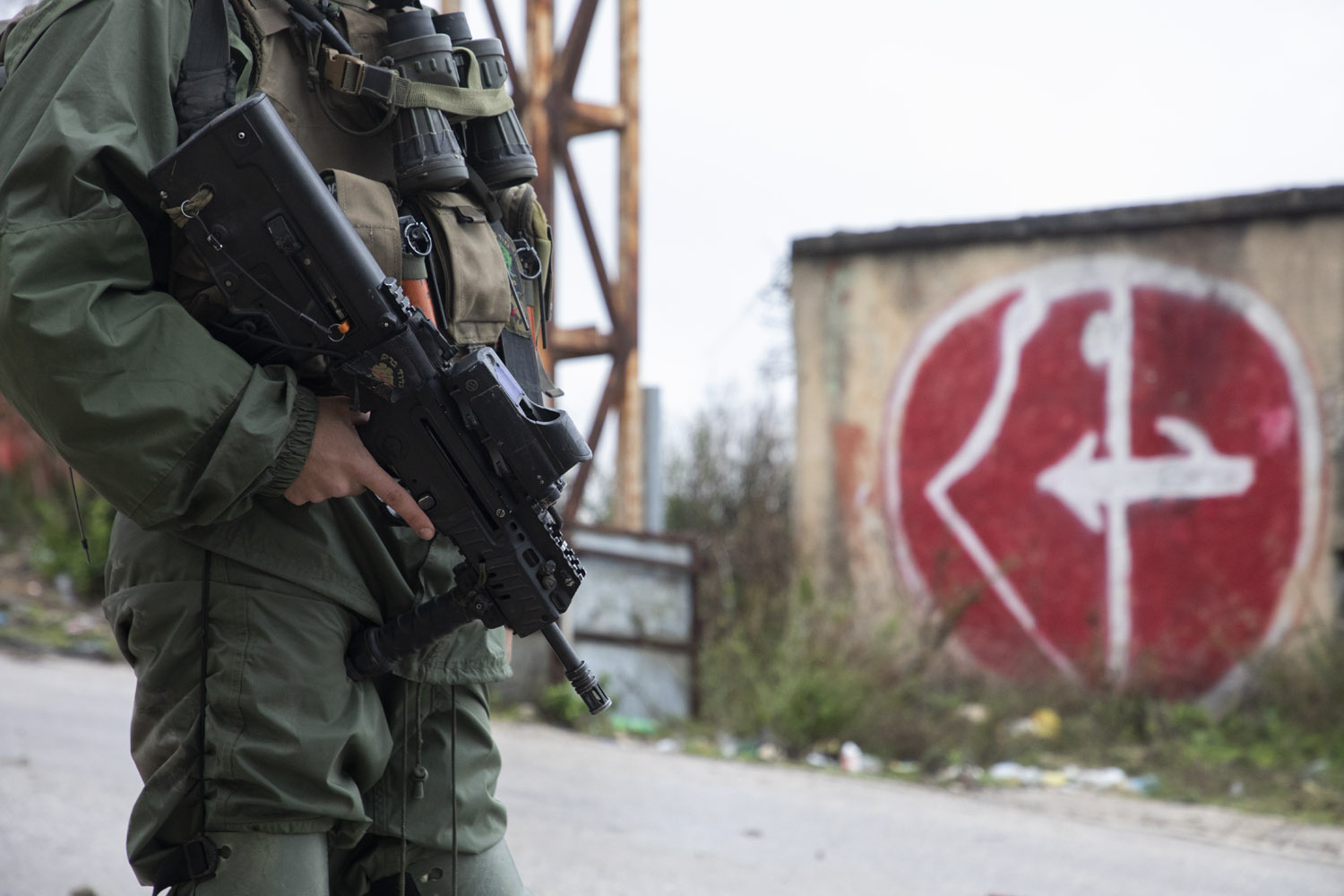This article was published in partnership with Local Call.
For the better part of the last year, the Israeli government has been on a mission to convince European countries that six of the most prominent Palestinian civil society organizations are actually a front for terrorism. Yet despite its efforts, which included a confidential 74-page Shin Bet dossier sent to diplomats last May, Israel has failed to persuade European leaders of its allegations.
After failing to persuade diplomats, Israel last month began circulating a new document authored by the Foreign Ministry — acquired by +972 and Local Call, and revealed here for the first time — with additional information, in a fresh attempt to link the organizations to terrorism. Once again, however, it appears Israel has been unable to substantiate its claims, and European leaders remain unconvinced. Meanwhile, Israel has rejected the six organizations’ request to receive details about the allegations, although it extended the period for submitting an appeal on the decision from Jan. 10 to Jan. 18.
The new document — which is designated “secret” despite not featuring any state logo marking it as official, and which was sent in either English or Hebrew to different countries — does not present any real evidence against the groups, but rather makes general claims about their alleged support for the Popular Front for the Liberation of Palestine (PFLP), which is proscribed as a terrorist organization by Israel, the United States, and the EU. It also focuses on alleged personal ties between senior members of the six groups and the PFLP.
The document comes on the heels of a 74-page Shin Bet dossier that Israel sent to various European countries in May 2021. The goal of that document was to prove that the six organizations — Al-Haq, Addameer, Bisan Center, Defense For Children International-Palestine, the Union of Agricultural Work Committees, and the Union of Palestinian Women’s Committees — are part of the PFLP, support its activities, and serve as a means of funneling money to it. Half a year after its circulation, Israeli Defense Minister Benny Gantz declared the organizations “terrorist groups.”
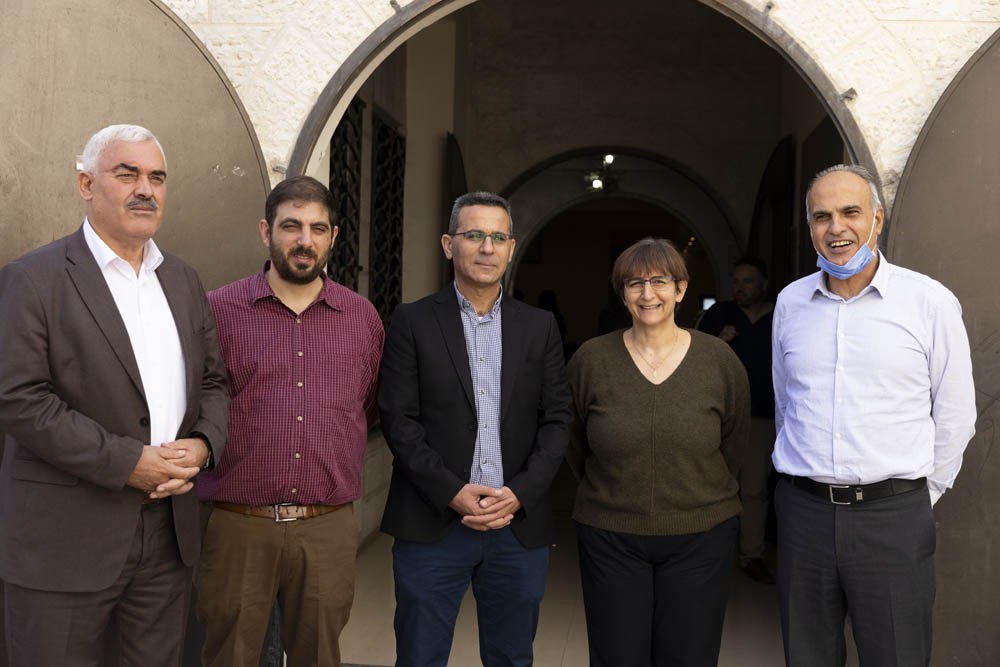
A joint investigation by +972, Local Call, and The Intercept immediately after Gantz’s declaration found that the Shin Bet’s allegations against the organizations were unsubstantiated, and based primarily on second-hand testimony by two Palestinian accountants who never worked for the organizations in question. The investigation further revealed that the “criminal” activities these NGOs were involved in allegedly included traditional Palestinian dance lessons and helping the sick.
The investigation also found that European countries in receipt of the Shin Bet report did not believe it constituted “concrete evidence” against the six organizations; following Gantz’s October declaration, Israel set off on a campaign to convince European countries and the United States that it had additional proof of ties between the organizations and the PFLP. The unsigned document, unlike the Shin Bet dossier, “profiles” the six NGOs and lists senior staff in each who allegedly have or have had personal ties to the PFLP. The document does not include allegations that these senior officials were ever involved in the PFLP’s military or violent activities.
The new dossier describes Addameer as “a very important organization for the PFLP,” which was founded in order to “send a clear message to PFLP operatives and the Palestinian public at large that the organization [PFLP] does not not abandon those who carry out terrorist activities against Israel, but rather compensates them and their family members and ensures their well-being.” The document further claims that Addameer “promotes public support for PFLP prisoners and leaders.”
The document names Addameer Executive Director Sahar Francis as a “PFLP operative,” and claims that “most of the organization’s employees are well-known and prominent PFLP operatives/supporters.” The document further claims that Addameer takes part in PFLP projects, without including any details, and that its “employees are engaged in organizational activities on behalf of the PFLP that are not directly related to the organization [Addameer], for example, passing on messages and instructions among PFLP prisoners.” The document also claims that Addameer’s offices are used for PFLP activities, although it does not elaborate on how or when.
The document further claims that Al-Haq, the oldest and most well-respected Palestinian human rights NGO, is a PFLP organization, whose employees are all “PFLP operatives.” Al-Haq, says the document, “focuses on legal warfare against Israel and acts in coordination [with] and under the direction of the PFLP leadership. The latter sees the activities [of Al-Haq] as strategically important in the struggle against Israel, and this is seen as supporting the PFLP’s armed struggle.”
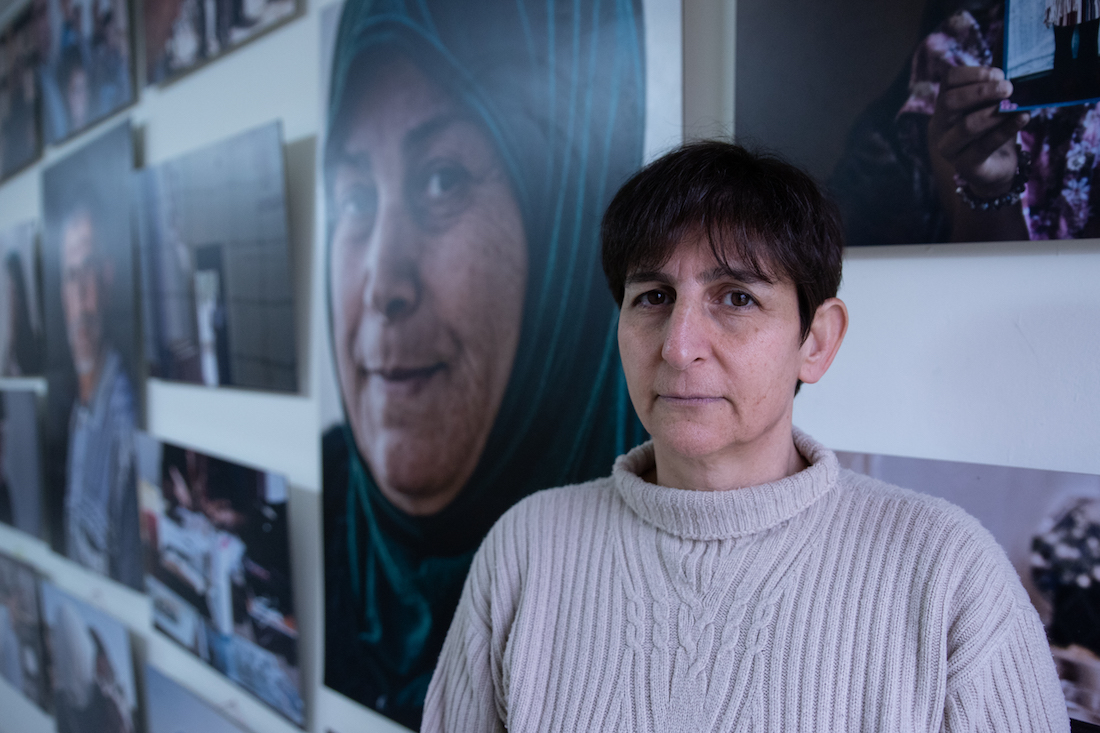
The Israeli Foreign Ministry claims that Al-Haq has “refrained from publicly presenting its belonging to the PFLP, and denies it. It is a conscious decision designed to retain donors and dispel any doubts that may arise by the international community about the organization’s credibility.”
Al-Haq Executive Director Shawan Jabarin is described in the document as “a senior member of the PFLP… as part of his work, Jabarin meets with PFLP operatives in various districts.” The document states that Jabarin has been part of the PFLP since the 1980s, has taken part in organizational activities, was part of the PFLP’s student cell during his studies at Birzeit University, and began working at Al-Haq while “he belonged to the PFLP.”
The document further argues that both Kitan Safin, who heads the Union of Palestinian Women’s Committees (UPWC), and Abla Sa’adat, an employee of the organization and wife of Ahmad Sa’adat — the secretary-general of the PFLP who is serving a prison sentence for masterminding the assassination of far-right Israeli minister Rehavam Ze’evi in 2001 — are both senior members of the PFLP.
According to the dossier, the UPWC “runs various projects in the West Bank, including those that serve the PFLP, for example, cultural centers and kindergartens.” The document also states that the organization focuses, among other things, on “supporting special populations, families of martyrs and security prisoners.” The document further alleges that the members of the UPWC has carried out activities on behalf of the PFLP, such as the transfer of funds, organizational training, and statements, and that the organization’s infrastructure was used for PFLP meetings. None of the claims were accompanied by details, dates, or any other evidence.
The document also claims that the Union of Agricultural Work Committees (UAWC) serves as a “key organization” of the PFLP, which is subject to its senior members and helps fund the PFLP. The document lists two senior members of the organization, Abed al-Razaq and Samer Arbid, who are currently on trial for plotting and carrying out the murder of 17-year-old Rina Shnerb at a spring in the occupied West Bank in 2019.
The document further states that UAWC receives millions of dollars in donations from European countries, and is involved in “forgery and fraud,” yet, as with its previous allegations, does not provide any evidence. The document also claims that UAWC’s offices are used for PFLP meetings.
‘You are taking away their last watchdog’
As with the Shin Bet dossier that preceded it, the new document has been unsuccessful in convincing European countries that the organizations were involved in terrorist activities.
“Not a single piece of incriminating evidence has been presented, not a single country has accepted or been convinced by the allegations,” a Western diplomat based in Ramallah who asked to remain anonymous told +972 and Local Call last month. “According to the existing information, [donor states] in Europe were not convinced that the documents provided by Israel justifies designating them terrorist organizations.”
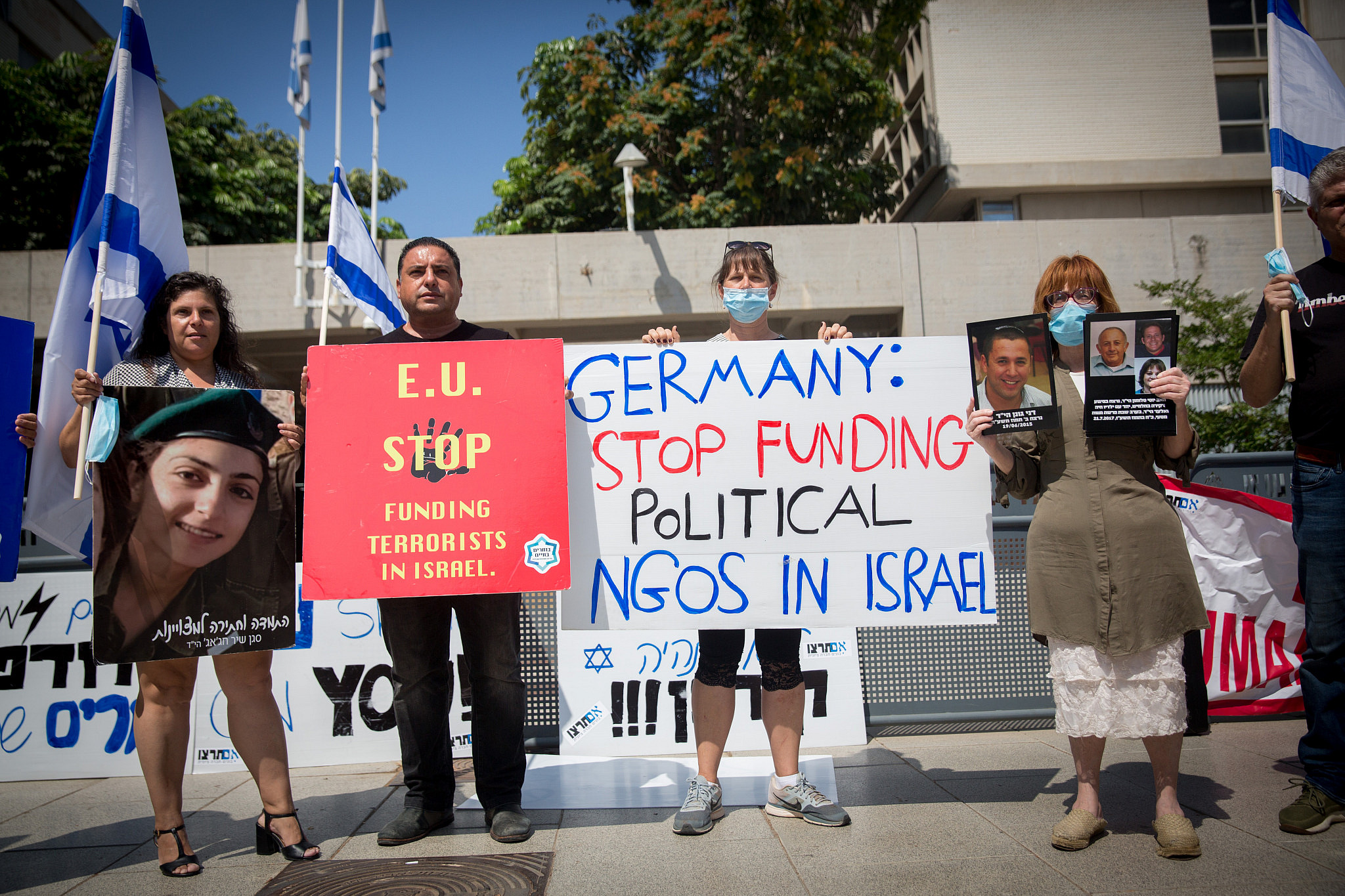
The same diplomat estimates that these countries will soon need to make a decision over whether to continue their financial support for the six organizations. “Most of the countries did not stop the funding, because we did not see evidence,” the diplomat said. “These countries cannot wait much longer. In the coming months a decision will be made, most likely to continue support.”
According to the diplomat, Israel’s decision to declare the organizations illegal “won’t hold up in a European court,” since Israeli law is “based on a much broader definition of what constitutes ‘terrorism,’ which does not match up with the way the European Union defines it.” In Israel, anyone who supports a group that has been designated a “terrorist organization” is automatically designated a “terrorist supporter.” In Europe, the diplomat explained, that is simply not the case. “Even if you expressed support [for a group deemed a “terrorist organization”], you will not be put on trial for doing so,” he said.
“We cannot punish the organizations because Israel designated them ‘terrorists’ on a different legal basis from ours,” the diplomat continued. “These organizations criticize the two dictatorships that have been created for the Palestinian people: a dictatorship by Israel and the dictatorship by the Palestinian Authority. You are taking away their last watchdog,” he added.
The diplomat’s remarks are in line with the official statements published by a number of European countries, as well as comments made by other diplomats. Denmark and Ireland have already announced they do not accept Israel’s allegations and will continue to fund the organizations, while representatives from 10 other countries told +972 and Local Call that they were unconvinced by the additional materials provided by Israel since October 2021.
Last week, however, the Dutch government announced it would stop funding UAWC, after it apparently found “personal connections” between its employees and the PFLP, and because the organization was not transparent about those ties. The decision, which came after an 18-month suspension of funding to the UAWC, uses similar language to that of the new document, which focuses on personal ties between the senior members of the six NGOs and the PFLP.
Yet the Dutch government’s announcement also rejected some of Israel’s central claims regarding alleged organizational connections between UAWC and the PFLP. Following an external investigation by the Netherlands-based Proximities risk consultancy group, which started in early 2021 and covered the period between 2007 and 2020, during which the UAWC received funding from the Netherlands, the government said it did not find evidence of “financial flows between the UAWC and the PFLP… Nor has any proof been found of organisational unity between the UAWC and the PFLP or of the PFLP’s providing direction to the UAWC.” The investigation also said no evidence was found of staff or board members having used their positions in the organization to organize armed attacks.
The Dutch announcement is therefore in line with the declarations of various European countries vis-à-vis the six organizations. During a session in the Danish parliament on Dec. 21, Foreign Minister Jeppe Kofod said that his government had not received documentation regarding Israel’s decision to declare Al-Haq a terrorist organization, and thus Denmark intends to continue funding the organization as planned, at least until 2023. Kofod added that should Israel provide evidence, it will “reassess the situation.”
The Irish government announced in November 2021 that Israel had not provided adequate evidence against the organizations. Foreign Minister Simon Coveney declared that “[w]e will continue to talk with both of those NGOs [Al-Haq and Addameer] about how we can continue to support their work.” In December 2021, Irish Ambassador to the UN Gerladine Byrne Nason said that “in the absence of evidence that would substantiate these allegations, Ireland will continue to support the organisations concerned.”
While other countries have rejected Israel’s allegations, they have not officially announced that they will continue to support the six organizations. Belgian Foreign Minister Sophie Wilmès announced in the beginning of December that “the alleged misuse of funds by some Palestinian partners have not been substantiated, nor their association with the PFLP. So far, the new allegations have not been substantiated either.” Wilmès further stated that “in a next phase, during which it is important to coordinate with our European partners, it will be necessary to determine our course of action at the operational level in support of civil society.”
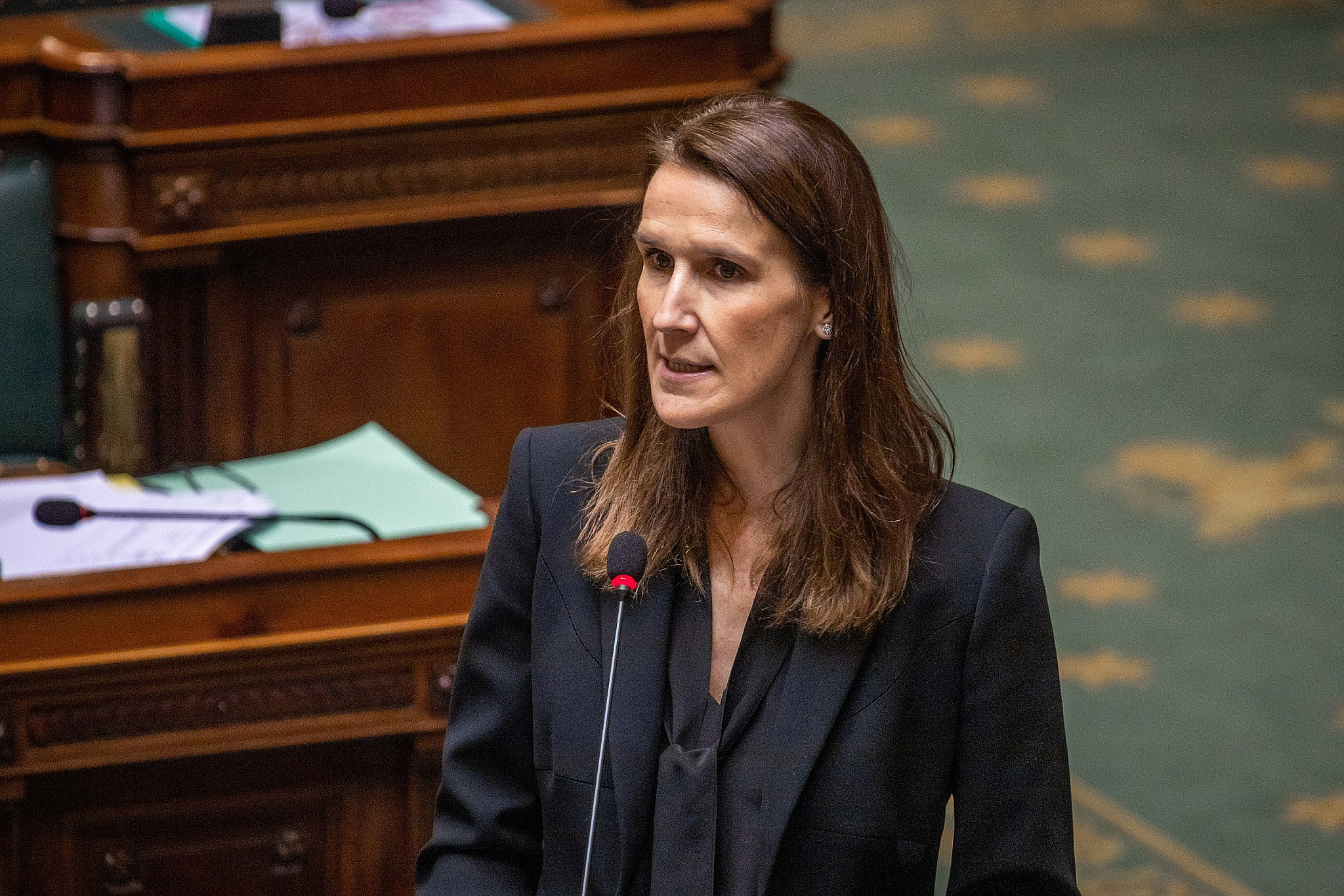
Norwegian Foreign Minister Anniken Huitfeldt stated on October 29 that she was concerned that Israel’s decision will “shrink the already limited space for civil society engagement in Palestine, in particular the space for human rights work,” and that “Norway gives high priority to efforts to promote human rights and support for civil society in Palestine.” Mona Juul, Norway’s ambassador to the UN, announced on November 30 that “If we are not presented — in reasonable time — sufficient information to corroborate these accusations, we will request Israel to rescind the decision.”
The governments of France, Germany, Italy, Sweden, and various EU bodies have also expressed “concern” over the declaration, noting that previous allegations of misuse of donor funds have been investigated but not proven.
‘The donors are afraid’
The six organizations’ attempt to acquire additional information from the Israeli authorities has not borne fruit. On Dec. 16, 2021, just under four weeks before the initial deadline set by the Israeli authorities for a hearing on the decision, the legal team representing the organizations demanded they receive the materials Israel used as a basis for its declaration. “Without detailing the allegations of concrete acts (act, deed, date, place), and without disclosing the evidence that allegedly establishes them, the organizations are not given a real and effective opportunity to respond and deal with the allegation against them,” the appeal said. “A hearing in which the evidence is not disclosed is a flawed proceeding that lacks the most basic characteristic of a fair trial.”
The Military Prosecution replied in early January that it refused to pass on the confidential intelligence upon which the declaration was based, and was only prepared to pass on non-confidential intelligence, since, it claimed, “the core of the declarations is based on classified, cross-referenced, and reliable intelligence.” The Military Prosecution has extended the timeframe to appeal until Jan. 18.
Al-Haq’s Shawan Jabarin told +972 that over the last few months he has met with representatives from France, Germany, the Netherlands, Sweden, Denmark, Norway, Spain, Belgium, and Ireland. “I was told in all the meetings that they believe that the allegations against us are unsubstantiated,” he said, adding that the representatives said they would publish declarations after the holiday season.
Addameer’s Sahar Francis also said that over the past two months, her organization has held numerous meetings with representatives of European countries, in which it emerged that Israel has not presented additional evidence since the Shin Bet dossier in May. “They say it is not enough and unconvincing. But they are still waiting to see if Israel will send more evidence. We think these countries should make a courageous public statement that says: ‘Two months have passed, time is running out. We are not convinced, and we will continue to support the organizations.’”
Fuad Abu Saif, who heads UAWC, said his organization asked the EU to set a deadline for publicly declaring whether they were convinced by the allegations, and whether they would continue to support the organizations. He said that some of the representatives he met with had told him they would issue such a statement in January. “There is fear. The donors are afraid, and the international organizations are afraid,” Abu Said told +972. “On the one hand, they believe that the statement against the six organizations is not based on anything. Yet on the other hand, they are waiting for a collective decision to continue supporting the organizations, so as not to stand alone before Israel. For example, this could take the form of a joint decision by all EU countries.”
Earlier this week, a number of Israeli human rights organizations, including B’Tselem, Breaking the Silence, Physicians for Human Rights-Israel, HaMoked, asked European donor countries to continue supporting Palestinian organizations and even increase their donations.
A version of this article was also published in Hebrew on Local Call. Read it here.

